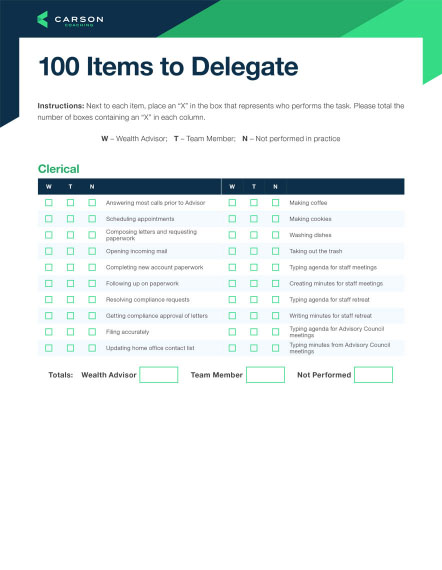We are reaching that point in the year when many of us start thinking about our personal and professional goals for the upcoming year. But goal-setting for 2021 isn’t like setting goals in a normal year – we’ve lived through months of uncertainty, with no sure end in sight, and most of us are in survival mode.
How do you set goals when seemingly everything is unknown, and you’re experiencing extreme burnout?
Goal-setting in a World of Unknowns
If you’re a goal-setting pro, you likely have a process for doing so. And you’re probably setting goals in either a SMAC (Specific-Measurable-Achievable-Compatible) or SMART (Specific-Measurable-Achievable-Relevant-Time-bound ) format.
It sounds like this: “I am going to run the Oz Marathon on April 17 in under 4 hours, 30 minutes.”
But, what if the marathon is canceled like it was in 2020?
What if, in order to limit the number of participants, you have to pre-qualify to run in this marathon? What if they move the date or location of the event, and you can’t make it work?
Now let’s think about the industry. What if the market continues to be volatile? What if your firm can’t hold in-person events? What if states implement more lockdowns? What if a key member of your team gets seriously ill?
The unknowns for 2021 are unlike anything most of us have experienced. It can make goal-setting really tough.
Here are four things you can do to adjust your goal-setting process so that it’s successful:
1. Focus on Activity Goals
In “normal” times, you can work with a fairly established set of assumptions to come up with achievable and stretch goals. But how do you set an AUM goal or number of new clients benchmark when the marketing strategies you’ve used in the past to find and bring on new clients may or may not be available to you in 2021? Simple – you don’t.
I’ve always suggested advisors set a combination of both outcome goals (like new AUM, revenue, or new clients) and activity goals (like number of phone calls made, number of webinars held, or videos posted to social media).
The reason? We can’t really control outcome goals – other external factors beyond our control can affect whether we achieve them.
We CAN, however, control activity goals.
When you’re looking at 2021, there are more unknowns than ever – so focus on setting activity goals that you can control.
2. Give Yourself Options.
This year, be a little less specific on some of your goals. Instead of saying you’re going to run a certain marathon on a certain date, set a goal to run a marathon or the X, Y, or Z marathon.
Instead of saying you’re going to host five wine-tasting client appreciation events at a local restaurant, set a goal to show appreciation to your top 25 clients in a meaningful way.
Be clear about what you want to achieve, but be flexible in how you get there.
3. Get Creative
Use this opportunity to get out of your comfort zone and try new strategies.
When the tried-and-true methods of reaching your goals aren’t available to you, it’s time to pivot and get creative. Set goals to learn about and implement other marketing and prospecting activities. Who knows what new avenues you might find?
4. Be Flexible
Want a goal-setting secret from a coach? Just because you set a goal doesn’t mean it’s set in stone – you’re allowed to change your goals.
Set your goals using the best information you have right now.
While we all hope we’ll be able to safely go back to traveling and large gatherings soon, much of that will depend on how quickly the general population has access to a vaccine. Base your goals on that information, and if a safe and effective vaccine is able to be widely distributed sooner than expected, adapt.
You can adjust your goals upwards.
Likewise, you may find your goals are a bit optimistic to start the year – allow yourself the flexibility to revise them part-way through the year to be more in line with reality. Plan a quarterly check-in to review and revise your goals.
Goal-setting When You’re Burned-out
Many advisors – really, many people – have seen an incredible level of burnout this year. If you’re feeling unmotivated and uninspired by goal-setting, that’s okay.
We are exhausted from living in a constant state of stress and anxiety, grieving the loss of people we love or things we were looking forward to. We’ve had to go without many of our traditional coping mechanisms – workouts at the gym, gatherings with friends and families, vacations and more.
Advisors have been dealing with the same stress everyone else has – plus, you have had to be there for your clients as an unofficial therapist to calm their fears about market volatility.
Firm owners and leaders experienced the triple burden of caring for their business, their clients, and their team.
We’ve had more asked of us this year than ever before, both personally and professionally.
Years ago when I was feeling burned out, I found myself unable to come up with any “real” goals, and I judged myself harshly for it.
What was wrong with me? Why couldn’t I set a meaningful goal? I ended up with only one goal, and it was definitely not in the SMART format: “Have a pretty garden.” That was it. And you know what? Looking back, that was a perfect goal.
Allow yourself the grace to let go of expectations and judgment around goal-setting. Trust me, there is absolutely nothing wrong with you. When this passes – and it will – you’ll be back to your goal-setting superstar self, maybe with some new perspective or wisdom that will make your goal-setting even more powerful.
In the meantime, try a couple of things:
Find a spark.
Over the next few weeks, be aware of anything that gives you even the tiniest spark of interest or excitement.
Maybe it’s a picture in “Fine Gardening” or an old picture of you playing basketball. Perhaps, it’s a beautiful cookbook or an advertisement for a virtual museum tour. Maybe it’s a social media post about a free online workshop to build your personal brand.
Whatever it is, notice it.
Give yourself permission to follow that spark of interest. As you follow it, you might notice a thought – something that sounds like “I would love to…”
Allow that thought to be your goal – even if it’s an easy one:
- “I want to take a virtual museum tour every month.”
- “I want to shoot hoops every day.”
- Or, “I’m going to plant a garden.”
- Etc.
That’s your goal. And it’s a great one.
Set goals to nourish yourself.
This is a hard one for many high achievers who are so used to pressing through challenging situations. “Self-care” can sound self-indulgent. But let me be clear: It’s not.
If you have hit extreme burnout, your focus should be to replenish and recover. Let go of all of the “normal” goals that are adding stress, and set goals to recharge your physical, mental and emotional reserves. Consider things like:
- Nutrition and hydration
- Exercise
- Rest
- Meditation, yoga and/or deep breathing
- Connecting with friends and loved ones
- Spending time doing things you enjoy
- “Unplugging” from social media, email, television, etc.
Remember Why You Set Goals
Goal-setting for 2021 might feel like a chore or pointless exercise – do goals even matter?
After all, this year many of them probably went out the window! But remember, the whole process of goal-setting is about spending time thinking about your vision and how to live a purposeful and fulfilling life.
It’s about gaining clarity on how you are going to get closer to your vision and live the kind of life you want to live. Goal-setting should inspire.
It should leave you feeling excited about the future, not stressed out about one more thing on your to-do list. So when you’re setting goals for next year, focus on what you can control, be flexible and creative, and don’t harshly judge yourself or your goals.
Remember, this shall pass, and before you know it, we’ll be back to goal-setting as usual.


